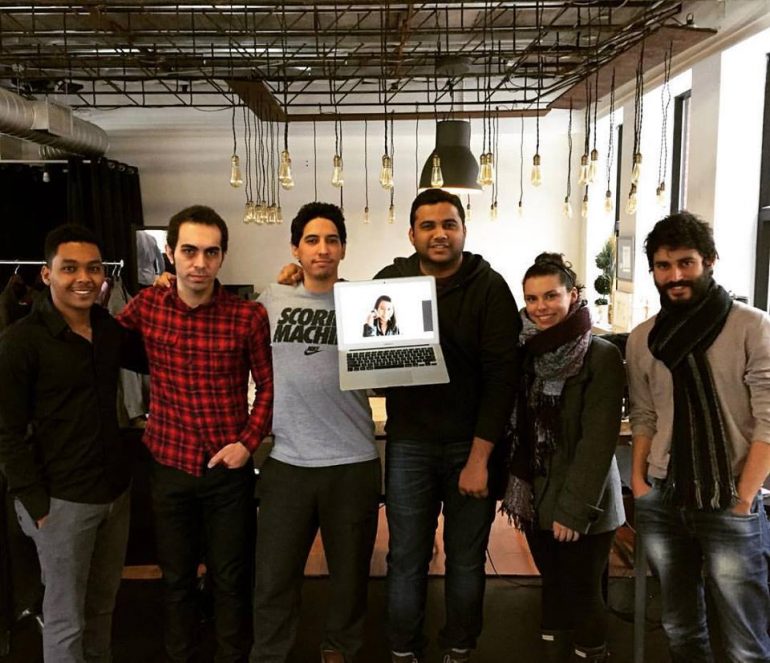On the ground floor of the old Redpath sugar refinery on Montreal’s Lachine canal, an informal coworking space has brought together a fascinating collection of Montreal’s entrepreneurs. With wildly different products — from smoothie cubes to tech-assisted custom tailored suits — the teams sit in all corners of the office, focused on their individual projects, but united in the drive to make a big impact and bring winning ideas to fruition.
The Dataperformers joke that they always work like a hackathon team no matter what project they’re focused on.
I was invited down by Dataperformers, a team of artificial intelligence researchers, data scientists, and engineers. Dataperformers is using its expertise to build custom AI solutions for mid-size to large companies in order to increase productivity and relieve specific pain points. The team’s model is one of long-term partnership: they build solutions for companies but share IP, and continue to work with their partners to maintain and grow products as needs change and priorities evolve.
“AI is a tool,” explained CEO and co-founder Mehdi Merai. “Finding problems to solve with AI isn’t that easy, so we work with existing companies who know their problems. We know the technology and we try to match the needs to build a solution.”
“Part of our mission is to democratize access to AI for companies,” continued Amine Ben Ayed, co-founder and head of business development. “We want to make it more competitive and efficient.”
But democratizing AI isn’t all that Dataperformers are up to. The main thrust of our conversation was about a disaster management solution they’re building for IBM’s AI XPrize, a $5 million competition that challenges teams around the world to develop and demonstrate how humans can use powerful AI technologies to tackle the world’s greatest problems.
With tangible excitement, Merai explained how they have been contacted by IBM and partnered up with a team working in disaster management at York University in Toronto. With a new purpose, the Dataperformers, who joked that they always work like a hackathon team no matter what project they’re focused on, have thrown themselves into the development of a disaster management solution that will change the way we deal with these cataclysmic events that affect billions of people around the world.
“The current solutions are too costly,” said Merai. “They’re solutions that are really difficult to deploy. We imagine this as a less costly alternative with better information consistency.”

Their solution deploys a network of autonomous drones that collaborate to collect and constitute consistent information around the disaster. That means that rather than using heavy and costly systems like those currently deployed (i.e. helicopters), they can make a much broader assessment of the disaster in less time by using the optimal number of drones based on the conditions of the disaster.
“The idea is based on drones and sensors because we know that the price of hardware will decrease,” said Ben Ayed.
The drones will find and classify survivors, as well as survey the land and compile possible evacuation routes. “How many are there?” said Merai. “What’s the best way to evacuate? Can I make classifications: how many children, how many adults?” The compiled data can then be read by anyone in the disaster management team, and the AI will also propose best approaches and solutions based on the current and historical data.
“The big added value,” Ali Alawad, product design scientist added, “…is that this is all linked to a service that’s easy to use for the correspondent’s offices, so it wouldn’t be a problem to interpret the data, which it is now. It used to take weeks to interpret data. We’re aiming to make it in real time.”
The AI XPrize is a four-year competition with annual milestone contests in 2017 and 2018. There are several selection stages, but the Dataperformers are very hopeful.
“It’s too fantastic,” said Merai enthusiastically. “The selected teams will present at TED. It’s amazing. I can just visualize us there.”


